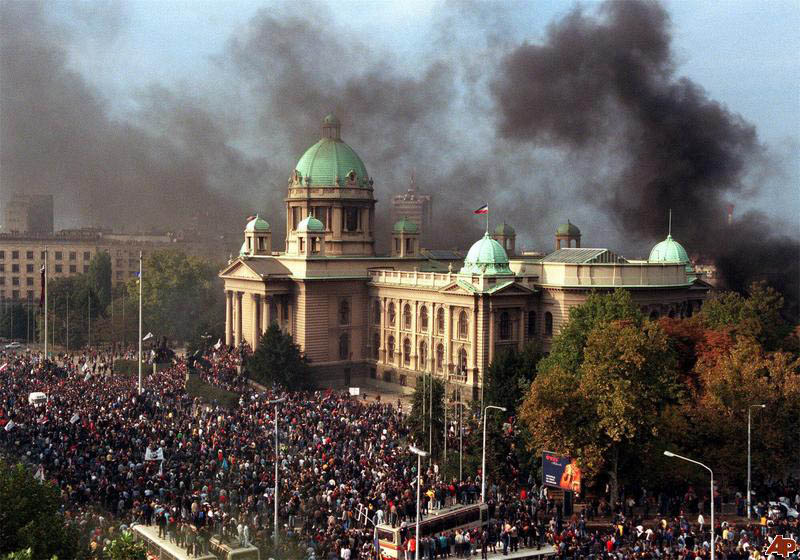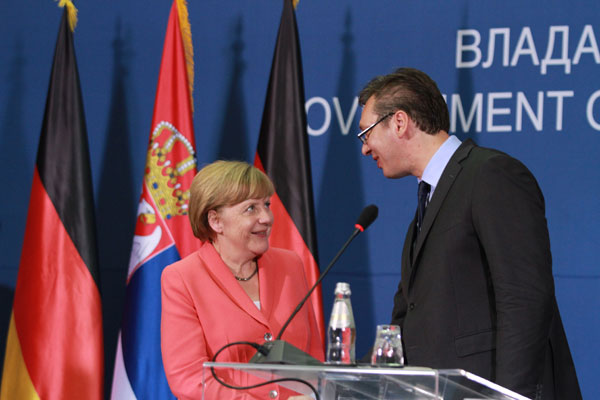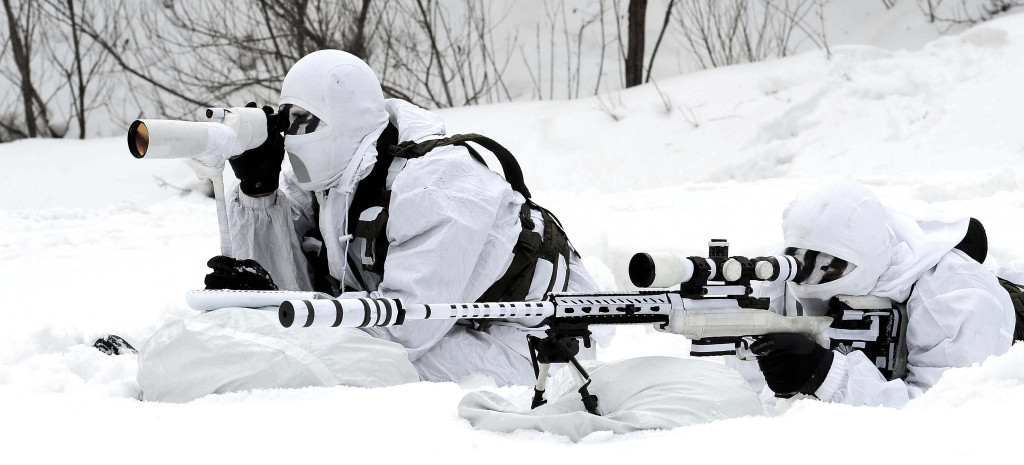As the catastrophic Syrian civil war carries on, the exodus of refugees into Europe has become a security issue, creating a crisis that has become dangerously divisive within the EU – and has left hundreds of thousands of refugees within Serbia’s borders. But, there is more to it. This crisis has the potential to either supercharge or undermine Serbia’s domestic and foreign policies by becoming domestically divisive or altering its EU accession potential.
This gives rise to an extremely important question the EU must ask itself – what about Serbia?

As Nick Avila wrote in “Flashpoint Europe: The Refugee Crisis and the Fate of the Union,” Syrian refugees are increasingly using travel routes through the Balkans since the cessation of Operation Mare Nostrum. These routes have been of critical importance since antiquity, being used for trade and war between two mighty continents. Therefore, the Balkans have always been considered on “the crossroads” between them – a coveted geostrategic location that has given it a tumultuous past, including 500 years of foreign occupation by multiple empires.
But Serbia is now on the crossroads in terms of the migration crisis. In the geographic sense, this is obvious. However, in an ideological sense, Serbia finds itself in a liminal state between the EU’s “community of values” and rationalist security paranoia of its members on the periphery. Sonja Licht best summed up this sentiment in her appeal to the EU given at the 2015 Belgrade Security Forum:
The EU is witnessing the 21st century’s first large migration wave moving towards its borders. This influx of people has forced countries on its Balkan route to manage hundreds of thousands of desperate, destitute people. Not yet EU members, these countries met the task with humanity and relative efficiency – only to find out that some EU countries had suspended the principles of human rights and other basic values that the Union is built upon. The image of the EU as a community of values with high standards of human rights protection is seriously undermined.
Setting the Security Stage
Currently, the EU’s Balkan periphery states are treating the influx of migrants as a threat to their social and economic sectors. This has come about in large part by institutionalizing post-war “securitizations.”[1] To clarify, after WWII, Europe “securitized” itself in order to prevent another war. This meant the creation the European Coal and Steel Community – the forerunner of the EU. Along with NATO, this secured Europe during the Cold War. However, this strategy was disrupted by the disintegration of Yugoslavia, which significantly traumatized both the Balkans and the EU. From a liberal perspective, the chaos that unfolded in the 1990s highlighted the EU’s inability to mobilize and act internationally in the name of its liberal core values. From the rationalist perspective, it highlighted an inability to protect regional stability at its borders.
This trauma intensified and expanded Europe’s institutionalization of security in the social, political, and military sectors. More specifically, these considerations led Europe to “securitize disintegration,” and adopt a policy of “universal values,” eastward expansion, and integration. It even led to “the European pillar” of NATO – the European Security and Defense Identity (ESDI).[2] With all of this in mind, it becomes clear why and how EU members became so security-focused.
Serbia’s Move to Europe – a Delicate Balance
Serbia’s move toward Europe has not been easy, in large part because of deep-rooted domestic political divisions. These divisions, combined with Serbia’s international role in the migrant crisis, have created a delicate balance which, if disturbed, could lead to significant European consequences. This balance has two main facets – the “us/them” dynamic and security divergence.

First, there exists a delicate balance with regard to the “us/them” relationship between Serbia and the EU. Even after the NATO air campaign, Serbia has made it a priority to move towards a stable, modern Europe, thus reducing the “us/them” gap. Serbia has arguably been on this path since October 2000, when the “Bulldozer Revolution” symbolized a popular intolerance of totalitarianism, communism, aggression, and violation of human rights. This is not to say that nationalists stood by; they put up a fight to widen the gap between Serbia and Europe, and the two primary discourses in Serbia – the nationalist-liberational and the civil-democratic (pro-EU), became deadlocked.[3] This became readily apparent in 2003, when Dr. Zoran Đinđić, the “first democratic prime minister,” was assassinated for his pro-EU reform agenda and his abrupt extradition of Milošević to The Hague in 2001.
In 2008, the pendulum arguably swung in the direction of Europe when Serbia reelected Boris Tadić as its president, and his coalition won a victory soon after in the parliamentary elections. However, due to recent delays in Serbian EU-accession, the Greek financial crisis, and the EU’s proclaimed “enlargement fatigue,” the nationalist-liberational discourse has been gaining momentum, swinging the pendulum away from Europe. According to the Serbian Office for EU Integration, public support for EU membership fell from 72% to 51% between 2003 and 2012.[5] Similar numbers were shown by other polls, including one done in 2014 by the EU Delegation to Serbia and Medium Gallup.[6]
However, the “us/them” dynamic isn’t the only complicated balance. The second one is a divergence in terms of security. Instead of moving closer to Europe’s culture of securitization, Serbia has been prodded along the path of desecuritization. Sanctions, war crimes tribunals, and international isolation have pushed Serbia to abandon nationalism and accept responsibility for the breakup of Yugoslavia. Furthermore, EU accession requirements have driven desecuritizations with regard to minority rights, normalization with Kosovo, and economic privatization.
This divergence of securitization and desecuritization has led to a emphatic conflict between the liberal universalism sold by the EU and the massive border securitization/nationalist bickering among EU member states. More problematic is the deportation and isolation of refugees in Serbia by EU neighbors who have rebuked Serbia for ethnic intolerance in the past. Some Serbs find this hypocritical.

Upsetting the Balance
So, what does this mean? It means that people in Serbia are already on the fence collectively with regard to EU accession, and as time progresses, the EU loses supporters within Serbia. This negatively upsets the political balance in Serbia, but so far not too severely. However, the bickering and the closing of borders with Serbia by EU members as a result of the immigration crisis, further endangers the balance by (1) exacerbating the “us/them” dynamic between Serbia and the EU and (2) emphasizing an ideological tension with regard to security and values.
Along with added political peril, however, this situation also provides opportunity and political capital for both Serbia and the EU. For instance, as early as December, 2014, according to the UN Refugee Agency, Serbia was already dealing with over 270,000 “population of concern” as a result of the crisis. In response, the Commissioner for European Neighbourhood Policy & Enlargement Negotiations, Johannes Hahn, praised Serbia for treating the refugees “with dignity, in line with international standards.”[7] This is a change in tone from the same man who announced last September that “enlargement fatigue” would prevent Serbia from joining the EU for at least five more years due to “technical issues.”
The Potential
Serbia’s involvement in this matter is a more than a technical issue, and it will likely influence Serbia’s EU accession. Therefore, the migration crisis connects Serbia urgently to European Union security politics. In other words, the attraction of the EU is waning in Serbia’s view, and the degree of how well (or poorly) Serbia is supported during this crisis will influence the degree of Serbia’s impact on European affairs.
That being said, Serbia’s positive reaction to this crisis represents an enormous bargaining chip with potential to influence its accession negotiations and possibly re-prioritize or hasten them. It also gives Serbia political leverage when dealing with its regional neighbors on a bilateral basis. Serbia is even better-positioned considering its current chairmanship of the OSCE. The elites in Serbia are proven rational actors, so it should be expected that they will immediately translate Serbia’s goodwill and emphasis on humanitarian assistance into political capital domestically, regionally, and throughout Europe.
Conversely, if Serbia misses this opportunity to leverage its political capital with regard to its handling of the refugee crisis, the nationalist-liberational discourse will continue to gain momentum by selling the crisis as another instance of abuse by the West. Serbs are already frustrated with changing conditions regarding EU accession, and lack of support on the part of Europe could push the Serbs away. This is a security risk in multiple sectors, both for Serbia and the EU. If Serbia is forced to face this risk alone, it will potentially seek resolutions eastward, (and already-degraded hopes for a re-emergence of positive OSCE influence might be undermined). According to the Serbian President, Tomislav Nikolić, “Serbia cannot resolve this issue, and Serbia is not the migrants’ final destination, but only a transit country…that the migrants do not want to stay in Serbia because the country does not have enough jobs even for the people who were born in it… [t]he EU has now been put to the test.”[8] The Serbian Prime Minister, Aleksandar Vučić, has echoed a similar tone, hinting at relations with the East: “We seek to join the EU, to achieve its standards, but also to preserve our good relations with Russia…”[9]
What About Serbia?
So, again, what about Serbia? The specific answer remains to be seen. Europe has spent the post-WWII years securitizing in order to protect its sovereignty and its values, but this institutionalized security culture has now collided head-on with those values, leaving a desecuritized Serbia in a unique position. There is no question that this crisis represents a potential watershed event with regard to Serbia’s political future, both domestically and internationally, but at a tertiary level, this delicate situation represents a significant turning point for European security policy. Even President Obama and President Putin have recognized this at the UN General Assembly, highlighting Serbia’s position and importance. When thought of this way, the consequences for Serbia take on a greater level of significance.
 MAJ Michael Anderson is a U.S. Army Armor Officer with extensive combat and humanitarian experience with the 82nd Airborne Division’s RSTA units. He received his B.S. in Electrical Engineering from USMA in 2004 and his M.A. in International Security from University of Belgrade, Serbia in 2015. The views expressed here are his own and not those of the US Army.
MAJ Michael Anderson is a U.S. Army Armor Officer with extensive combat and humanitarian experience with the 82nd Airborne Division’s RSTA units. He received his B.S. in Electrical Engineering from USMA in 2004 and his M.A. in International Security from University of Belgrade, Serbia in 2015. The views expressed here are his own and not those of the US Army.
[1] “Securitizing,” in the non-financial sense, is to frame an issue as an existential threat to some highly-coveted referent object. Securitzations occur throughout a linked series of sectors, including social, economic, and military. In the case of immigration, the referent object is usually cultural identity or economic stability. See Security: A New Framework for Analysis (1997) by Buzan, Wæver, and de Wilde.
Also, this article will not delve into the Iraqi or Syrian power vacuums or their causes – that merits a separate analysis.
[2] The ESDI has evolved as a way for Europe to decisively intervene internationally without NATO, and is now known as the Common Security and Defense Policy (CSDP).
[3] See “Security, Culture, and Identity in Serbia” (2007) by Filip Ejdus.
[4] Ejdus, “Serbia, Culture, and Identity,” 47. Originally, the nationalist-liberational discourse is a product of the 500-year struggle to free Serbia from occupation and imperialism. More recently, it has asserted general disdain through polemics against the EU, NATO, the West, and the US. On the other hand, the civil-democratic discourse in Serbia is newer, rooted in political freedoms, respect for human rights, democratic values, and shared identity with Europe.
[5] “Podrška građana članstvu u EU pala na 57 odsto – Politika”.
[6] “Serbia: 57 Percent of Citizens in Favor of EU Membership – Poll
[7] “Migrants: EU, Commissioner Hahn in Serbia, Visits Centre”
[8] “Nikolic: It is not possible to let migrants settle in Serbia permanently”
[9] “Vucic: Obligations Will Only Change when Serbia Becomes EU Member State”






